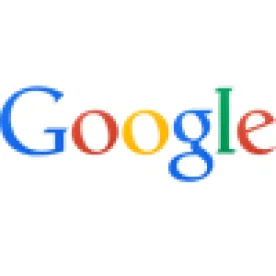Takeaway: To prevail on an argument that a patent claim is not adequately supported by the written description in the specification, the petitioner must prove that the written description does not “reasonably convey[ ] to those skilled in the art that the inventor had possession of the claimed subject matter as of the filing date.”
In its Final Written Decision, the Board concluded that claims 25-29 of U.S. Patent No. 7,203,752 are unpatentable. The ’752 patent relates to using location-based services over mobile wireless networks and, in particular, to a “subscriber profile” that includes a description of the applications that are permitted to receive location information and under what conditions.
The Board began with claim construction, construing all terms using the broadest reasonable construction in light of the ’752 patent specification.
The Board then turned to the merits of Petitioner’s challenges, beginning with whether claim 25 is unpatentable over combinations of (1) Havinis ’931 and Leonhardt, and (2) Landgren and Leonhardt. According to the Board, Patent Owner’s response did not address these alleged grounds of unpatentability and the Board thus considered only the evidence of record as presented in the Petition. The Board was persuaded that both combinations of references disclose the limitations cited by claim 25. In addition, the Board concluded that Petitioner “set forth a showing of articulated reasoning with rational underpinning” to combine the references. Accordingly, the Board concluded that Petitioner showed that claim 25 would have been obvious.
Next the Board considered whether claim 26 lacks written description support. Petitioner asserted that the limitations “notifying the wireless device that the client application is not authorized to receive the location information” (“the notifying limitation”) and “updating the subscriber profile to authorize the client application to receive the location information during subsequent requests” (“the updating limitation”) were added during prosecution and are not supported by the language of the originally-filed application. In determining whether the written description is sufficient, the Board stated that it looks to “whether the ’752 specification ‘reasonably conveys to those skilled in the art that the inventor had possession of the claimed subject matter as of the filing date,’” explaining that “‘the disclosure as originally filed does not . . . have to provide in haec verba support for the claimed subject matter at issue,’ nor must it describe ‘every conceivable and possible future embodiment of [the] invention.’” The Board first considered, and was persuaded by, Patent Owner’s argument that the “denying” and “notifying” limitations do not have to occur in any particular order in relation to each other. Next, after considering the language of the specification and the parties’ arguments, the Board also was persuaded that “the ’752 patent provides broad support for providing notifications of various messages to different elements of the system at multiple points in the described process” and that Petitioner had not shown by a preponderance of the evidence that the ’752 patent fails to support the notifying limitation. With respect to the “updating” limitation, Patent Owner argued that Petitioner’s argument that the limitation was not sufficiently described “rests on the flawed premise that the updating limitation must be performed after the notifying limitation.” As discussed above, the Board was persuaded that no such order is required, and thus also was persuaded that the ’752 patent adequately supports updating the subscriber profile as claimed.
The Board then considered whether claims 25-29 are unpatentable under 35 U.S.C. § 101, applying the framework set forth in Mayo Collaboration Services v. Prometheus Laboratories, Inc., 132 S.Ct. 1289 (2012) and Alice Corp. Pty. Ltd. v. CLS Bank Int’l, 134 S.Ct. 2347 (2014). Petitioner argued that the “the claimed invention is directed to the abstract idea of controlling access to location information using a subscriber profile.” In response, Patent Owner argued that “[a]n underlying idea” of the claims “is protecting location information in an electronic system under control of individual subscribers using client application specific preferences,” which is not abstract because the claims “do not preempt all practical implementations.” The Board agreed with Petitioner, stating that “the identified abstract idea is similar to the kind of ‘organizing human activity’ at issue in Bilski and Alice” and the challenged claims are “comparable to other communication-based patents that have been invalidated after Alice.” After determining that the claims are directed to an abstract idea, the Board then considered whether they include “additional elements that can ‘transform the nature of the claim’ into a patent-eligible application of an abstract idea.” The Board was not persuaded that the challenged claims added “an inventive concept sufficient to ensure that the patent in practice amounts to significantly more than a patent on the abstract idea itself.” Accordingly, the Board was persuaded that Petitioner showed by a preponderance of the evidence that claims 25-29 of the ’752 patent are unpatentable under 35 U.S.C. § 101.
Google Inc. v. Unwired Planet, LLC, CBM2014-00006
Paper 31: Final Written Decision
Dated: April 6, 2015
Patent: 7,203,752 B2
Before: Michael W. Kim, Jennifer S. Bisk, and Barbara A. Parvis
Written by: Bisk
Related Proceedings: Unwired Planet, LLC v. Google Inc. (D. Nev.); IPR2014-00037



 />i
/>i

